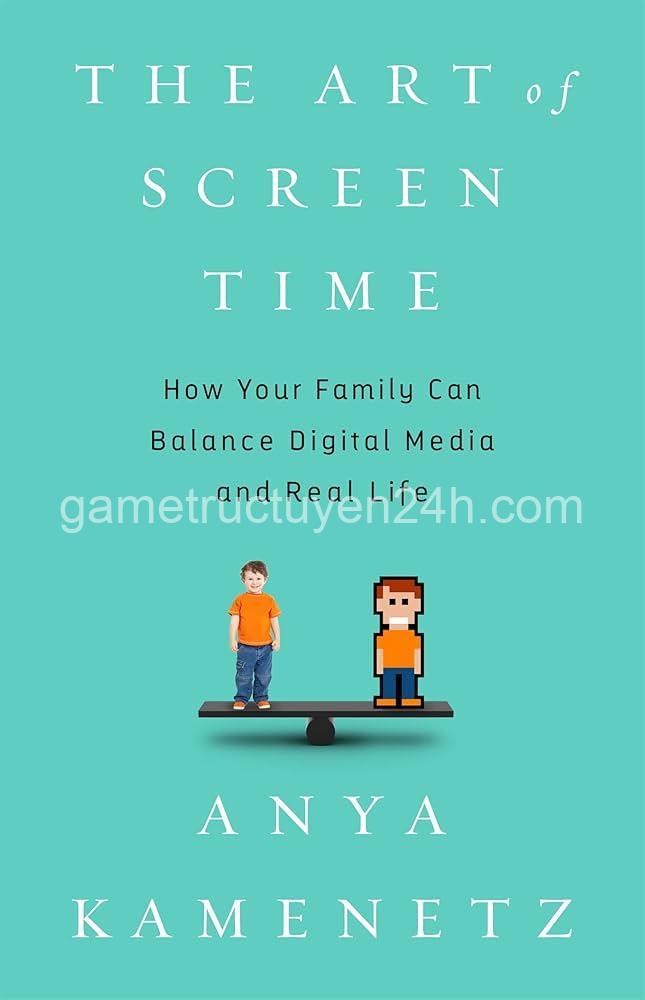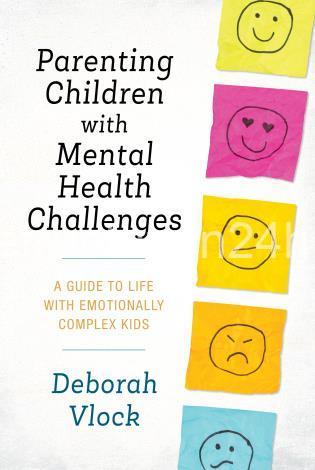Parenting Books & Child Psychology: A Guide for Informed Parents. In today’s article, gametructuyen24h.com will explore with you in the most detailed and complete way. See now!
Understanding Child Psychology in Parenting
Understanding child psychology is crucial for effective parenting. It helps us navigate the complex world of raising children and understand their behavior, emotions, and developmental needs. By understanding how children learn, grow, and interact with the world around them, parents can create a supportive and nurturing environment that fosters their child’s well-being.
Here’s how understanding child psychology can benefit parents:
- Attachment and Bonding: Knowing the importance of secure attachment helps parents build strong bonds with their children, fostering a sense of security and trust.
- Emotional Development: Understanding how children develop emotionally helps parents recognize and validate their children’s feelings. It also equips them with the tools to guide their children in managing emotions, building resilience, and developing emotional intelligence.
- Behavioral Patterns: Understanding typical behavior at different ages helps parents differentiate between age-appropriate behavior and potential issues. This knowledge empowers parents to address challenging behaviors effectively and foster positive behavior patterns.
- Communication: Effective communication is vital for healthy parent-child relationships. By understanding how children communicate at different ages, parents can learn to listen actively, express themselves clearly, and resolve conflicts constructively.
- Discipline: Understanding child psychology helps parents create effective discipline strategies that are both consistent and age-appropriate. It emphasizes fostering self-regulation, setting clear boundaries, and promoting positive behavior through encouragement and positive reinforcement.

Types of Parenting Books Focused on Child Psychology
Let’s explore the different types of parenting books that can provide valuable insights into child psychology:
- Developmental Stage-Specific Books: These books are tailored to address the unique needs and challenges of specific age groups, such as toddlers, preschoolers, teenagers. They offer practical guidance and strategies for navigating common developmental milestones and challenges.
- Issue-Specific Books: These books focus on specific parenting challenges, such as sleep training, managing tantrums, improving communication, or supporting children’s emotional development. They provide targeted solutions and support for common parenting concerns.
- Books Based on Theoretical Frameworks: Some parenting books are based on specific psychological theories, such as Attachment Theory, Cognitive Behavioral Therapy (CBT), or Positive Parenting. These books offer a deeper understanding of child development and provide a more comprehensive approach to parenting.
- Holistic Parenting Books: These books emphasize a broader perspective on parenting that integrates various aspects of child development, including physical and emotional health, social-emotional learning, and mindfulness practices for both parents and children.
Finding the Right Parenting Book for You
Choosing the right parenting book can be a daunting task. Consider these factors:
- Your child’s age and stage of development: Select a book that addresses the specific needs and challenges of your child’s current stage of development.
- Your parenting goals and philosophy: Choose a book that aligns with your values, parenting style, and desired outcomes for your child.
- Your personal learning style and preferences: Select a book that resonates with your learning style, whether you prefer practical advice, theoretical frameworks, or anecdotal stories.
Don’t hesitate to seek recommendations from other parents, read reviews, or consult with experts to find the perfect parenting resource for your family.
Using Child Psychology Insights for Effective Parenting
Now that you understand the different types of parenting books available, let’s explore how to apply these insights to your everyday parenting:
- Building Strong Attachments: Create a secure and loving environment where your child feels safe, loved, and supported. Respond to their needs consistently and provide ample opportunities for physical touch, eye contact, and positive interaction.
- Supporting Emotional Regulation: Help your child learn to identify, express, and manage their emotions. Model healthy emotional regulation, provide words for their feelings, and teach coping strategies for managing difficult emotions.
- Communicating Effectively: Learn to listen actively to your child, validate their feelings, and express yourself clearly and respectfully. Practice clear communication, avoid judgment, and create an open and safe space for dialogue.
- Setting Appropriate Limits: Establish clear boundaries and expectations for behavior, and consistently enforce them with love and understanding. Use positive reinforcement and natural consequences to guide your child towards desired behaviors.
- Encouraging Self-Reliance and Problem-Solving: Empower your child to become independent by allowing them to make age-appropriate choices and solve problems on their own. Offer guidance and support when needed, but avoid overstepping or taking over.
- Promoting a Positive and Nurturing Environment: Create a home environment that is physically and emotionally safe, fosters creativity, and encourages exploration. Spend quality time with your child, engage in meaningful activities together, and provide opportunities for growth and learning.
FAQs about Parenting Books and Child Psychology
What are some good parenting books for toddlers?
Many excellent resources focus on toddler development and behavior. Some popular titles include “The Happiest Toddler on the Block” by Harvey Karp and “Parenting with Love and Logic” by Jim Fay and Foster Cline.
Are there books that address specific parenting challenges like sleep problems?
Yes, there are numerous books that focus on specific parenting challenges, including sleep issues. Some popular titles include “The No-Cry Sleep Solution” by Elizabeth Pantley and “Healthy Sleep Habits, Happy Child” by Marc Weissbluth.
How can I find parenting books based on specific psychological theories like Attachment Theory?
You can search for parenting books based on specific theories by looking for titles that explicitly mention the theory in the title, description, or reviews. You can also consult parenting experts, educators, or online resources that specialize in specific theories.
What are some resources for holistic parenting?
There are many resources for holistic parenting, including books that emphasize the interconnectedness of physical, emotional, and social-emotional well-being. Some popular titles include “The Whole-Brain Child” by Daniel J. Siegel and Tina Payne Bryson and “Parenting with Presence” by Michael Mendizza.
How can I apply child psychology insights to my parenting style?
Understanding child psychology can help you make informed choices about your parenting style and approach. It can help you develop more effective communication strategies, create a more nurturing environment, and implement discipline techniques that are both effective and respectful.
Conclusion
Parenting is a challenging but rewarding journey. Understanding child psychology can equip you with the tools and knowledge to create a positive and supportive environment for your child’s growth and development. Explore different parenting books, find the ones that resonate with your parenting style, and use the insights to make informed decisions that promote your child’s well-being.
Remember, you’re not alone on this journey. Connect with other parents, share your experiences, and learn from each other. And for more helpful resources and information on parenting, check out my website, gametructuyen24h.com. Don’t hesitate to leave comments and share your thoughts below!
EVA:
- Entity: Parenting Book, Attribute: Focus, Value: Child Psychology
- Entity: Parenting Book, Attribute: Author, Value: Harvey Karp
- Entity: Parenting Book, Attribute: Author, Value: Jim Fay and Foster Cline
- Entity: Parenting Book, Attribute: Author, Value: Elizabeth Pantley
- Entity: Parenting Book, Attribute: Author, Value: Marc Weissbluth
- Entity: Parenting Book, Attribute: Author, Value: Daniel J. Siegel and Tina Payne Bryson
- Entity: Parenting Book, Attribute: Author, Value: Michael Mendizza
- Entity: Parenting Book, Attribute: Topic, Value: Toddler Development
- Entity: Parenting Book, Attribute: Topic, Value: Sleep Training
- Entity: Parenting Book, Attribute: Topic, Value: Attachment Theory
- Entity: Parenting Book, Attribute: Topic, Value: Holistic Parenting
- Entity: Child Psychology, Attribute: Area, Value: Attachment
- Entity: Child Psychology, Attribute: Area, Value: Emotional Development
- Entity: Child Psychology, Attribute: Area, Value: Behavioral Development
- Entity: Child Psychology, Attribute: Area, Value: Communication
- Entity: Child Psychology, Attribute: Area, Value: Discipline
- Entity: Child, Attribute: Age, Value: Toddler
- Entity: Child, Attribute: Age, Value: Teenager
- Entity: Parenting Style, Attribute: Type, Value: Authoritative
- Entity: Parenting Style, Attribute: Type, Value: Permissive
ERE:
- Entity: Parenting Book, Relation: Focuses on, Entity: Child Psychology
- Entity: Parenting Book, Relation: Written by, Entity: Author
- Entity: Parenting Book, Relation: Addresses, Entity: Parenting Challenge
- Entity: Parenting Book, Relation: Based on, Entity: Theory
- Entity: Child Psychology, Relation: Includes, Entity: Area of Development
- Entity: Child, Relation: Belongs to, Entity: Age Group
- Entity: Author, Relation: Writes, Entity: Parenting Book
- Entity: Age Group, Relation: Associated with, Entity: Child Development
- Entity: Parenting Challenge, Relation: Addressed in, Entity: Parenting Book
- Entity: Theory, Relation: Underpins, Entity: Child Psychology
- Entity: Theory, Relation: Supports, Entity: Parenting Approach
- Entity: Parenting Style, Relation: Influences, Entity: Parenting Practices
- Entity: Child, Relation: Possesses, Entity: Temperament
- Entity: Parenting Practice, Relation: Informed by, Entity: Parenting Style
Semantic Triples:
- Subject: Parenting Book, Predicate: Focuses on, Object: Child Psychology
- Subject: Parenting Book, Predicate: Written by, Object: Author
- Subject: Parenting Book, Predicate: Addresses, Object: Parenting Challenge
- Subject: Parenting Book, Predicate: Based on, Object: Theory
- Subject: Child Psychology, Predicate: Includes, Object: Area of Development
- Subject: Child, Predicate: Belongs to, Object: Age Group
- Subject: Author, Predicate: Writes, Object: Parenting Book
- Subject: Age Group, Predicate: Associated with, Object: Child Development
- Subject: Parenting Challenge, Predicate: Addressed in, Object: Parenting Book
- Subject: Theory, Predicate: Underpins, Object: Child Psychology
- Subject: Theory, Predicate: Supports, Object: Parenting Approach
- Subject: Parenting Style, Predicate: Influences, Object: Parenting Practices
- Subject: Child, Predicate: Possesses, Object: Temperament
- Subject: Parenting Practice, Predicate: Informed by, Object: Parenting Style





